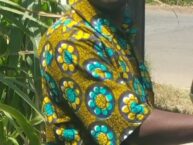 Anu Lal is the author of five books; four of them short story collections and one novella. He has also written a book of nonfiction that includes philosophical reflections and reviews of contemporary realities. He is also a blogger, educator, and research scholar. His books are: Wall of Colours and Other Stories, You Should Know How I Feel…, Prabuddha: The Clear-sighted, and Mount Sermon: A Novella. His work of non-fiction is titled Unclassified Intelligence. Recently, he edited an anthology titled Better Than All Happy Ever Afters. He blogs at: The Indian Commentator. He tweets @Anulalindia.
Anu Lal is the author of five books; four of them short story collections and one novella. He has also written a book of nonfiction that includes philosophical reflections and reviews of contemporary realities. He is also a blogger, educator, and research scholar. His books are: Wall of Colours and Other Stories, You Should Know How I Feel…, Prabuddha: The Clear-sighted, and Mount Sermon: A Novella. His work of non-fiction is titled Unclassified Intelligence. Recently, he edited an anthology titled Better Than All Happy Ever Afters. He blogs at: The Indian Commentator. He tweets @Anulalindia.Gandhi
The old man sighed and passed away muttering one phrase three times. The crowd that had gathered around him for the usual prayer did not repeat his chants after him, as was the custom.
Instead, they let out a magnanimous cry. The whole nation, a reporter said, cried that evening with the crowd that witnessed the old man shot.
“Three bullets,” the doctor told the media.
“The light has left us,” said the prime minister.
On his funeral pyre, he looked like a withered old body, just like any other human being. They said he was the mahatma. They also said he was an angel.
Someone quoted Albert Einstein: “future generations would never trust us if we tried to sell them the story of this man, living amongst humans in flesh and blood.”
“He was the Buddha,” someone added.
“He was Vishnu avatar, stupid,” someone else claimed.
“He was truly the Mahatma,” a poet remarked.
They were heartbroken, all of them. But their minds were not chaotic. They had certainty. They all had their own stories to tell their descendants. They had a hero, they had an angel, they had a man who died without defense, they had someone who never whined, cried, or complained.
Years passed. People weren’t kind to each other. The nation wasn’t doing well, at least the way the mahatma would have wanted it to be.
One day, years later in Cannanore, Kerala, another old man who was a young boy back at the time of the mahatma’s death, went back in his memory lane. Something wasn’t right. His mind ached at some apparent confusion. Chaos roamed in the corners of his soul.
The old man groped for the remote control of the television set. The volume slowly went up as he squeezed the control. A woman with lot of anger was speaking to a crowd of foreigners. She was a well-known author. Her words sparked hatred. She said that the old mahatma was an imposter. He was a cheat, she said. He was a man with no conscience, she asserted. She was comparing the old mahatma with another man, the man who led a team in making of the Constitution.
The old man watched TV with a helpless sigh. Then, his son came inside the dull room. He sat down and started watching TV.
“The doctor represented the downtrodden. The doctor must be above the mahatma,” spoke the woman on TV.
“She is lying,” intervened the old man, watching TV. The woman on TV talked relentlessly.
“Why do you think mahatma holds such an important position in today’s Indian society?” asked the old man’s son, seeing the discomfort on his father’s wrinkled face.
“Why shouldn’t he?” the old father asked with helplessness written all over his face.
“Well, because mahatma is someone who denigrated the status of dalits by branding them Harijans,” said the son.
“And what do you call them these days?”
“Dalits,” the son said casually.
“So what does that term mean?” asked the father.
“It means…, I mean…. I don’t know clearly… but I think she has written this book on this issue where she discusses these issues in detail,” the son said confused at the old father’s question. He pointed at a book on the table.
“It says in the book that she wrote only the Foreword,” said the father.
“But she has some valid points to make,” the son replied.
“If she is trying to bring into forefront another hero from India’s history, let it be. Its’ a good thing, isn’t it?” the old man said.
“You didn’t answer my question, father.”
“Which question, son?”
“Why is the mahatma given such an auspicious position in today’s Indian society? Isn’t it injustice? Shouldn’t it end?”
“Why do you think I am the right person to ask that question?” the old man retorted.
“Because you grew up in his time.”
The old man stood up exasperated.
“I am sad that I have to explain it to you now. This is the legacy of this nation. It has no faith in its own history,” he said and walked toward the window to open it. On his way he took the book on the table and gave it to his son.
“Read it carefully. I read it, and I discovered that it commits the same error most of us do, when we talk about the mahatma,” He said. “And your question has a flaw in it too, at least to me. I don’t see people respecting the mahatma a lot daily, as it used be.”
The son took the book in his hand. Although he had bought it out of his curiosity through some shopping site, reading the book wasn’t something he had the fortune of doing. But he felt at ease, because now it seemed that his father, this old man had no answers to fill his revolutionary question. The mahatma was the icon of his father’s youth. He and his compatriots took the mahatma model as a guiding signal.
“He never called himself the Buddha,” the old man spoke up. His words cut through the thoughts of the son. He stared up at his father. With his one hand, the old man opened the window. Light entered the room. A slow breeze sanctified the sterile inner weather.
“What do you mean?” the son asked.
“He never said he was an angel, or the Buddha, or Vishu’s avatar. It’s the people…, and of course it was insane. But all of us were insane back then. We needed a symbol to stand beside, a warrior to fight alongside…,” the old father paused.
“But he stood for ahimsa…. how could you call him a warrior?” the son intervened before the old man could resume.
“He was a warrior, a quiet one. But the world is wrong in saying that ahimsa was his greatest contribution.”
The old man paused again and gave a period of time for the thought to sink in with his son. His son was sitting on his chair aghast at where his father was taking him with his arguments.
“I am not raising an argument, my son,” the old man said, as if reading his son’s mind. “This is not an argument. Am telling you what I know to be true. The mahatma’s greatest contribution wasn’t ahimsa. It was something else. When the doctor, as the woman on TV called the other person, and others were complaining about their shortcomings and misery, the mahatma was busy creating ways to bypass those hurdles. He discovered ahimsa to be very powerful. But his greatest contribution is meaning,” the father stopped and looked at his son.
“Meaning?” the son asked.
That was the question the old man expected. His face shone in satisfaction.
“Yes, my son. The mahatma infused not just everything he did but everything that happened around him with meaning. Until the arrival of the mahatma, our struggle for freedom was just a political one. But he made it a spiritual affair. Our struggle and every bit of pain we experienced as part of it became a step toward salvation. When everyone complained, the mahatma gave all our pain a meaning so we could endure, but endure with beauty in our hearts.”
The son was silent. His eyes were watery and shining.
“In fact, he never called himself the mahatma. It was the people who surrounded him that addressed him mahatma, the great soul,” the old man continued. “It was the world around him that gave him his attributes, trying in vain to return the favor he had bestowed upon them by giving their lives meaning. He was always simply, Mohandas Karamchand Gandhi.”



